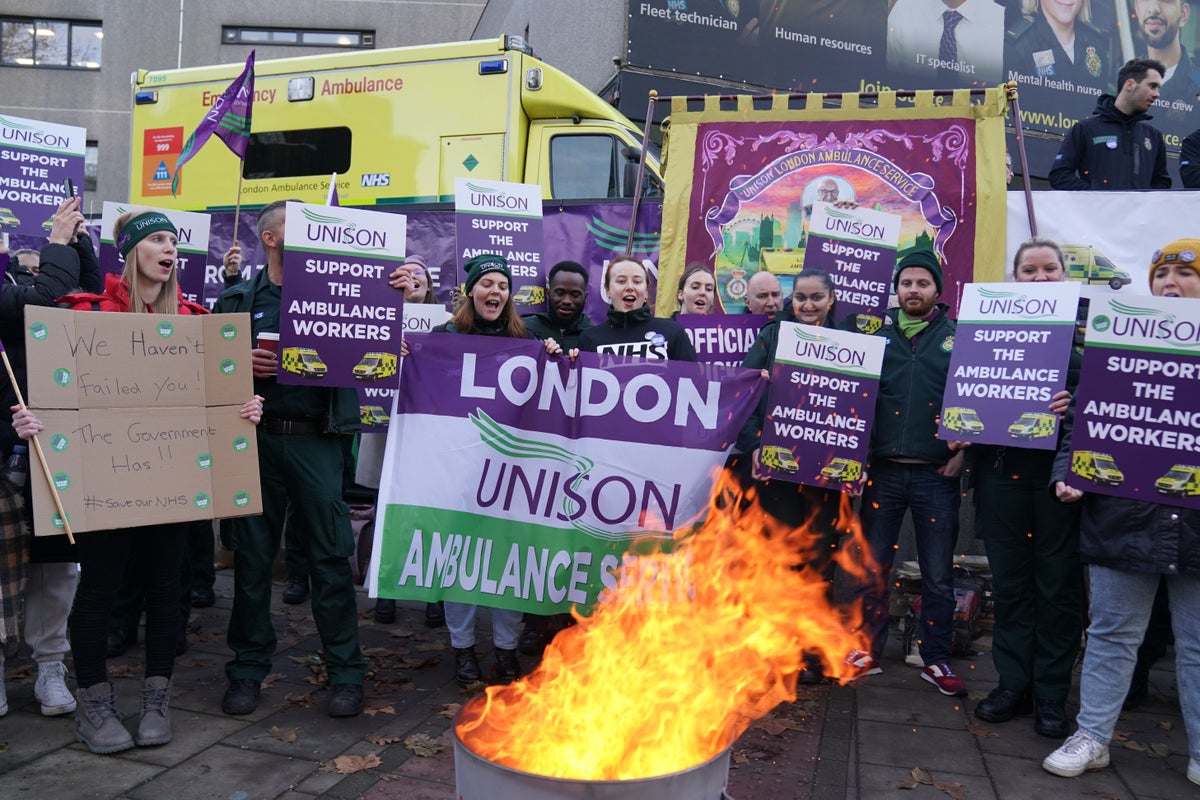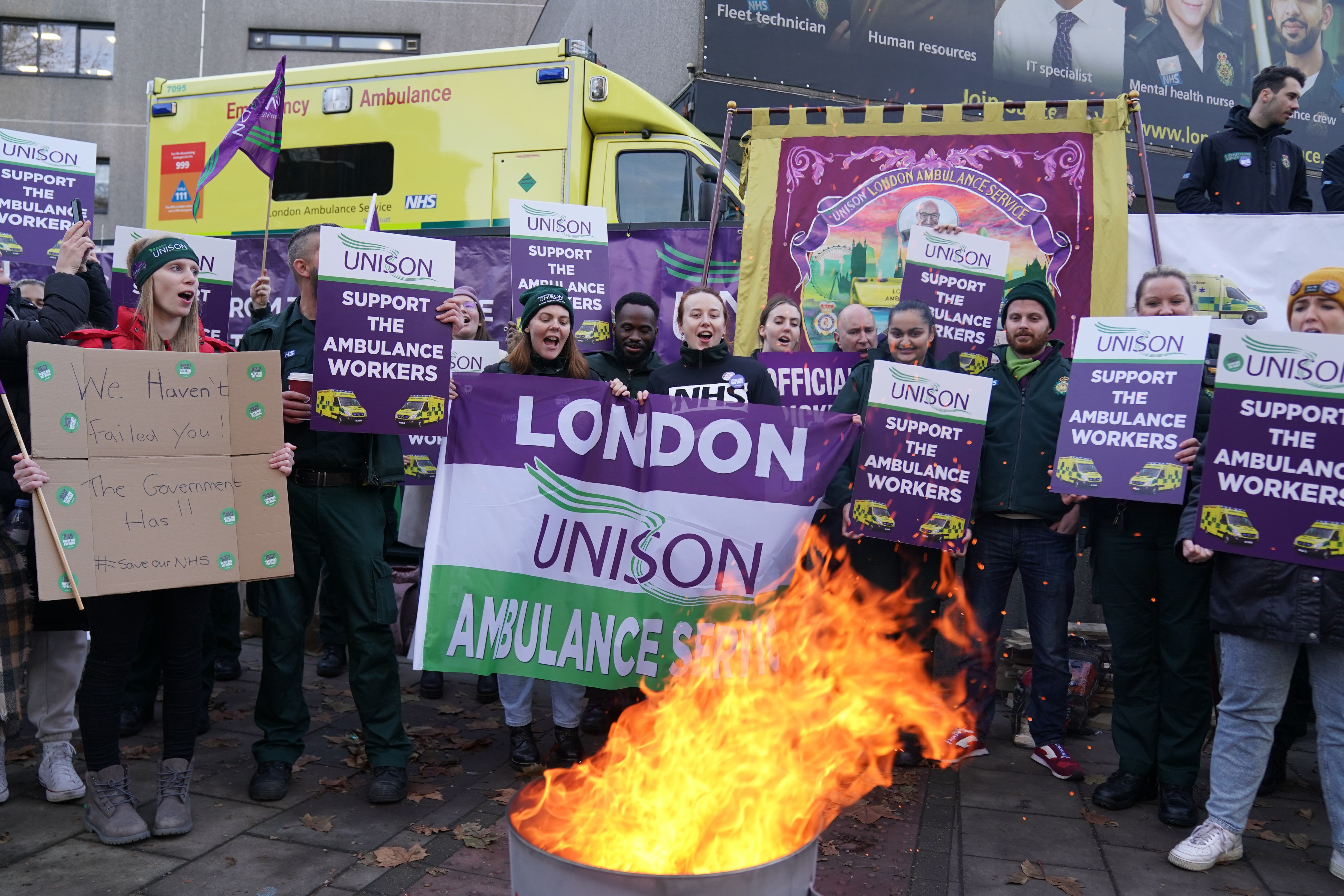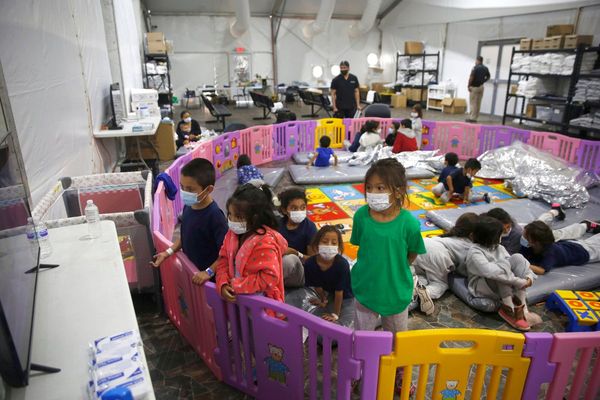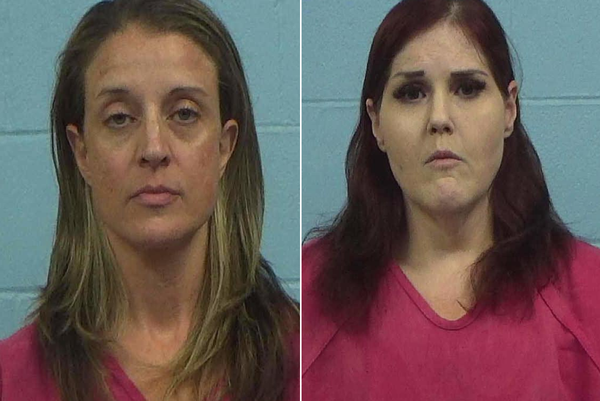
Rishi Sunak’s government could fast-track an NHS pay rise next year after 48 hours of historic strikes by nurses and paramedics, according to reports.
Health secretary Steve Barclay is said to be ready to offer an expedited pay deal in 2023 in a bid to prevent fresh industrial action next year.
A source close to Mr Barclay revealed he is keen to “speed up” the pay review process – set to begin in April – to give NHS staff a pay rise to break the deadlock.
NHS workers would usually have to wait until August for the process to finish and for staff to receive a backdated rise following recommendations by an independent review body in April.
“Steve is very keen for this to go ahead at pace and not be dragged out as it has been in the past,” the source told the newspaper.
On Wednesday Mr Barclay urged unions to “look forward” to next year’s deal rather than trying to force a better deal on this year’s offer of an average 4 to 5 per cent pay rise.
But unions have said they expect NHS workers to be offered a 2 per cent increase next year, based on a letter sent by Mr Barclay last month to the NHS Pay Review Body.
It comes after unions and ministers remained in stalemate over pay, after thousands of nurses picketed on Tuesday while ambulance staff staged their biggest strike in 30 years on Wednesday.
The Royal College of Nursing (RCN) – demanding a 19 per cent rise – is expected to announce fresh strike dates for January on Friday, unless there are moves on pay talks.
Pat Cullen, RCN general secretary, has dismissed the independent pay review body as being “set up by government, paid by government, appointed by government and the parameters of the review are set by government … there’s nothing independent about it”.
NHS Providers warned this week’s strikes will have a knock-on effect on appointments and said it expected a return to “very high numbers” of emergency calls in coming days.
The membership organisation for NHS hospital and ambulance services said there had been “varying levels of disruption” – but the number of people phoning 999 appeared to drop in some parts of England on Wednesday.
However, the organisation warned that demand for care across the whole healthcare system remained high and trust leaders were reporting ongoing delays to ambulance services and overcrowding at some A&E departments.
“I think emergency departments, particularly, are going to feel the strain in those areas where there were strikes, which for ambulance services was in every part of the country apart from the east of England,” said Saffron Cordery, interim chief executive of NHS Providers.
Matthew Taylor, chief executive of the NHS Confederation, said while there had been a fall in 999 calls on Wednesday but a rise in people phoning 111.

“We coped as well as we could yesterday but it is incredibly important to recognise we cannot go on coping with industrial action in the NHS because each time it happens there are direct consequences and also all sorts of knock on effects,” he told BBC Radio 4’s Today programme.
Health chiefs stepped up calls for the government to negotiate with unions on pay. Mr Taylor urged ministers and union bosses to “step away from the rhetoric and step towards negotiation”.
Unite had accused Mr Barclay of “a blatant lie” after he said ambulance unions had “taken a conscious choice to inflict harm on patients” with Wednesday’s strike. “The unions have negotiated critical cover, including 999 calls, at a local level with hosts of NHS trusts. That is how it is done,” said Unite’s Sharon Graham.
Unions had agreed that ambulance staff would respond to category one calls and the most serious category two calls (including heart attacks and strokes), but there was no guarantee of a response to less urgent category two calls, such as falls, in some parts of the country.
At least 11,00 staff were absent from work across England during strikes by the Royal College of Nursing (RCN) on Tuesday, and more 13,000 appointments and procedures had to be rescheduled, according to NHS England.
Thousands of ambulance workers took industrial action on Wednesday, with members of the military stepping in to take their place and trusts telling patients only to call 999 in the case of a life-threatening emergency.
The next ambulance strike is due to take place on 28 December. Workers across several other industries are also set to strike in the build-up to Christmas.
On Thursday, strikes will be held by Unite members working for Highlands and Islands Airports, National Highways workers in London and the South East, and the Driver and Vehicle Standards Agency (DVSA) in the North West, Yorkshire and Humber and North Wales.
Unison workers at the Environment Agency will refuse to provide on-call cover for unexpected incidents, and Rural Payments Agency staff will continue their walkout.
On Friday, the National Highways and DVSA strikes are due to continue, while Royal Mail workers will begin a two-day national stoppage. Christmas Eve will bring strikes from RMT railway workers from 6pm, and London bus workers at Abellio.







